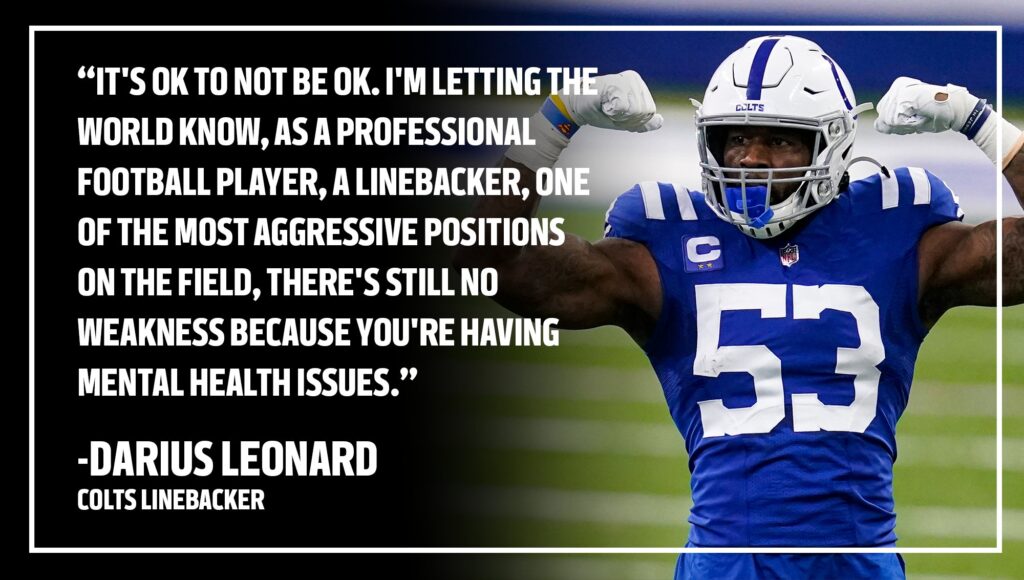The Unsung Role of Mental Health in Building Elite Athletes: Unlocking Peak Performance

In the world of elite sports, physical prowess often steals the spotlight, but mental health plays a crucial role that’s too frequently overlooked. We’ve seen countless athletes rise to fame, yet behind their achievements lies a complex interplay of mental resilience and emotional well- being. Understanding this dynamic is essential for anyone looking to excel in competitive environments.
As we dive into the unsung role of mental health in shaping elite athletes, we’ll explore how psychological strength can enhance performance and longevity in sports. From coping with pressure to fostering a growth mindset, mental health strategies are fundamental in building not just champions but well rounded individuals. Alongside mental preparation, many athletes also recognize the dietitian benefits that support overall wellness and optimize performance through tailored nutrition.
Join us as we uncover the vital connection between mental wellness and athletic excellence, supported by insights from experts in the field.
Understanding Mental Health in Sports
Mental health plays a vital role in the overall well-being of athletes. It encompasses emotional, psychological, and social well-being, influencing how we think, feel, and act in competitive environments.
Definition of Mental Health
Mental health refers to our emotional and psychological state, affecting how we handle stress, relate to others, and make decisions. A balanced mental state promotes resilience, focus, and confidence essential qualities for athletes performing under pressure. Organizations like the
World Health Organization emphasize that mental health is integral to our overall health, highlighting its significance for those in high-performance sports.
Importance in Athletic Performance
Mental health directly impacts athletic performance by influencing motivation, concentration, and resilience. Athletes with strong mental health can cope with the pressures of competition, manage stress effectively, and maintain a positive mindset. Research shows that mental wellness can enhance performance outcomes and extend athletes’ careers, proving that physical skill alone is insufficient.
Employing mental training techniques, such as visualization and mindfulness, can optimize our performance and help develop a growth mindset for sustained success.
The Connection Between Mind and Body
The relationship between mental and physical health plays a pivotal role in an athlete’s performance. Understanding this connection helps elite athletes maximize their potential on and off the field.
How Mental Health Affects Physical Performance
Mental health influences physical performance significantly. Stress, anxiety, and depression can lead to fatigue, reduced stamina, and impaired focus. Studies indicate that athletes experiencing high levels of psychological distress often show decreased physical capabilities and lower levels of motivation. For example, elite runners who practice mindfulness report improved endurance and better race outcomes.
Similarly, team sports players exhibiting strong mental health demonstrate enhanced coordination and agility, as they can maintain concentration despite distractions. By prioritizing mental wellness, we encourage athletes to harness their full physical capabilities.
The Role of Mindset in Training
Mindset shapes the training experience for athletes. A growth mindset—the belief that abilities can improve with effort—enables athletes to embrace challenges and learn from setbacks.
Research shows that athletes with a positive mindset display greater resilience in training and competition. For instance, when facing difficult workouts, a strong mental attitude fosters perseverance and commitment. Furthermore, visualization techniques allow athletes to mentally rehearse their performance, enhancing both confidence and execution. Adopting a constructive mindset not only boosts training effectiveness but also creates a foundation for sustained athletic success.
Overcoming Mental Barriers
Athletes often encounter significant mental barriers that can hinder their performance. Understanding these challenges and implementing effective strategies to address them is vital for achieving peak performance.
Common Mental Challenges Faced by Athletes
We recognize several common mental challenges that athletes frequently face. These include:
- Performance Anxiety: Pressure to perform often leads to anxiety, affecting focus and execution.
- Self-Doubt: Doubts about abilities can undermine confidence and hinder optimal performance.
- Burnout: Continuous training without adequate mental breaks can lead to physical and emotional fatigue.
- Negative Self-Talk: Pessimistic thoughts can diminish motivation, leading to underperformance.
Addressing these challenges is essential for maintaining mental health and achieving athletic goals.
Strategies to Combat Mental Struggles
We can adopt various strategies to combat mental struggles effectively. Some effective approaches include:
- Mindfulness Practices: Engaging in mindfulness techniques helps athletes stay present and reduces anxiety.
- Visualization Techniques: Visualizing success boosts confidence and prepares the mind for competition.
- Setting Achievable Goals: Establishing specific, measurable, and realistic goals supports motivation and focus.
- Seeking Support: Enlisting the help of coaches, psychologists, or support groups fosters resilience and healing.
Implementing these strategies can enhance mental resilience, improving overall athletic performance.
The Role of Coaches and Support Teams
Coaches and support teams play a vital part in fostering mental health among elite athletes. Their influence can shape the mental resilience necessary for high-level performance.
Building a Supportive Environment
Creating a supportive environment is essential for athletes’ mental well-being. Coaches must encourage open communication, allowing athletes to express concerns and seek help. This transparency builds trust and enhances team cohesion. We recognize that peer support can also contribute to a positive atmosphere, as teammates uplift one another during challenges.
Additionally, promoting a culture of inclusivity helps athletes feel valued, reducing the stigma surrounding mental health discussions. As a result, such environments enable athletes to thrive both mentally and physically.
Integrating Mental Health Practices in Training
Integrating mental health practices into training routines strengthens athletes’ psychological resilience. We advocate for the inclusion of mental skills training, such as visualization, goal-setting, and mindfulness, within regular practice schedules. Coaches can guide athletes in developing coping strategies for stress and performance anxiety. Regular check-ins can help assess mental health needs and ensure athletes receive adequate support. Consistent reinforcement of mental health principles alongside physical training not only enhances performance but also fosters long-term psychological well-being. By prioritizing mental strategies, we enable athletes to perform at their peak when it matters most. For deeper insights, check out resources from the American Psychological Association.

NFL Draft Diamonds was created to assist the underdogs playing the sport. We call them diamonds in the rough. My name is Damond Talbot, I have worked extremely hard to help hundreds of small school players over the past several years, and will continue my mission. We have several contributors on this site, and if they contribute their name and contact will be in the piece above. You can email me at nfldraftdiamonds@gmail.com
